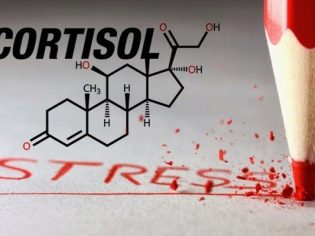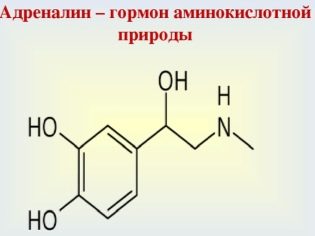What is a psychosomatic condition and for what symptoms can it be identified?
Quite often in life it happens that there is a disease, but there are no objective reasons for it. Or the child is treated by different methods, and the result is not achieved - the disease does not recede. In this case, talking about the psychosomatic condition, which requires a special approach. How to find out such a state, we will tell in this material.
Special features
Psychosomatic is a condition in which the physical manifestations of the disease appear on the background of a certain mental state, mental disorder, or a severe internal psychological conflict unrecognized by the person himself. That is, the process was launched in the mental and emotional sphere and reflected on the physical condition.
The interest of physicians in the close connection between the mental component and bodily health manifested itself even in the times of ancient Greek healers and philosophers, but psychosomatics became the official section of medical science only at the beginning of the last century. The prevalence of such diseases according to various estimates ranges from 64 to 85%. This means that for most people, the root cause of the disease is a psychological factor.
Mechanisms
Everyone, even newborns, experience stress. By itself, stress is a normal human condition. When there is fear or anxiety, resentment or anger, a protective mechanism is launched in the body, which is called stress. The cerebral cortex gives the "order" to the musculature to bring everything into "alert" - the muscles tighten, stress hormones begin to be produced. When the danger passes, the body relaxes. However, with chronic prolonged stress relaxation does not occur. In this case, invisibly, the blood circulation of the tissues begins to be disturbed, malfunctions in cellular metabolism occur. The disease gradually develops.
Experts believe that the most important role in the formation of the disease is the hormone adrenaline. Under stress, this particular hormone is produced the most. If later, when stress is complete, adrenaline does not find a way out (in muscular activity or shouting as an expression of emotion), then it is likely that the muscle clamps will remain and the gradual and inevitable deterioration of the body will begin.
According to this principle, all psychosomatic states develop: those that occur after the onset of the disease, and those that precede it.
The reasons
In order for a psychosomatic illness to occur, a person must have a physiological predisposition - the potential readiness of an organ or system to fail. Causes are external and internal. Most often, they act jointly, the external cause (personality traits, disaster, loss, and so on) only strengthens and supports internal stressors: anger, resentment, fear, and more.
Most often, psychosomatic conditions develop for several reasons.
- Conflict within the individual - inconsistency of desires and opportunities, needs and responsibilities creates a state of emotional overload. Very often, the person himself does not give an account of this, since the conflict develops at the level of the unconscious.
- Experienced experience. Usually we are talking about severe emotional trauma of childhood. People with such injuries are very anxious, they do not know how to relax.
- The benefits of the disease - a person has a need to be sick.Patients are paid attention to, taken care of, they have every right not to do what they don’t want to do, for example, to go to work or go to school.
- Self-suggestion or external suggestion - the person himself, or someone authoritative suggested to him that he is sick. Gradually, the disease is actually detected.
- Personality Features - infantilism, inability to express their feelings, isolation, inadequate self-esteem, dependence on the opinions of outsiders.
- Identifying yourself with a sick loved one - at the subconscious level, a person begins to copy the one who is dear to him. Often this person has already died. Along with copying, diseases are also inherited.
- Punishing yourself - A person suffers from a sense of guilt, hates himself, and, in fact, punishes himself with a disease.
Symptoms
Symptoms do not always have a clear picture, quite often people complain of a wide variety of disorders - from periodic abdominal pains or headaches to causeless sudden diarrhea, heart palpitations, high blood pressure. Most often for psychosomatic reasons, chest and headaches, pains in the abdomen, joints, and muscles are observed. The catch is that when you go to the doctor, neither the tests nor the examinations show any changes or deviations from the norm. A distinctive feature of such symptoms is their clear attachment to certain emotional states: the stomach, for example, begins to hurt just before an important event, and the head hurts after a strong negative emotion that a person could experience during an argument.
When the psychosomatic state is neglected, analyzes and instrumental examinations reveal changes on the part of the diseased organ, but it is difficult for the doctor to name the cause of the disease.
The most common symptoms of a psychosomatic condition are:
- shortness of breath and dizziness;
- feeling of heaviness in the heart;
- muscle clamps;
- chills or hot flushes;
- diarrhea and constipation;
- heartburn and belching;
- decrease in sexual function, desires;
- weakness and fatigue;
- nasal congestion, cough.
Children additionally often develop insomnia, and manifest bedwetting. Many children with a psychosomatic condition have a rash, they are more often asked to drink, they may experience nausea and even vomiting for no apparent reason.
If, against the background of psychogenic influence, immunity is reduced, then the child often begins to suffer from viral diseases, ARVI.
What to do?
If psychosomatosis is not treated, the disease will develop according to all the laws of progression - organic lesions of the organ and functional disorders will be recorded. A person will be doomed to constant medication, he will lose his freedom, will be significantly limited by his illness. Therefore, if you suspect a psychosomatic disorder, you need to visit a psychotherapist, psychologist or psychiatrist. These specialists will help you find the true cause of the painful condition. The treatment of psychosomatosis is long and painstaking. They are engaged in a certain profile doctor, psychotherapist, the main thing is a person’s own desire to become healthy. Without it, success can not be achieved.
All current psychotherapeutic methods and techniques that are used today are used in treatment, and art therapy and family therapy are very helpful in child psychosomatics. Simultaneously with the establishment and gradual elimination of the root cause, a person receives symptomatic treatment - to relieve pain, physical symptoms. Often in the treatment regimen include antidepressants, and in particularly difficult cases, tranquilizers.
Of the psychological methods, hypnosis, NLP, psychoanalysis and gestalt therapy are most often used. They try to involve relatives and friends of the patient in the treatment, because they bear a great responsibility in the rehabilitation process. They are advised on how to deal with the patient, what to do, how to help him during the recovery phase, how to prevent the problem from returning again.
Forecasts
Speaking of projections, it should be understood that a fairly quick positive effect is achieved only if the psychosomatic condition was noticed and detected in the early stages. The longer a person has spent in this state, the higher the likelihood that the stressor will become a character trait, and then the cure will be a rather difficult task.
But it is also difficult to give positive predictions if a person creates a disease as a benefit, if he needs it to achieve some goals. To part with the disease in this case, he simply has no motivation. And another category of patients who are most difficult to treat, those who do not believe in the cause, refuses to be aware of it.
For more on psychosomatics, see the following video.




















